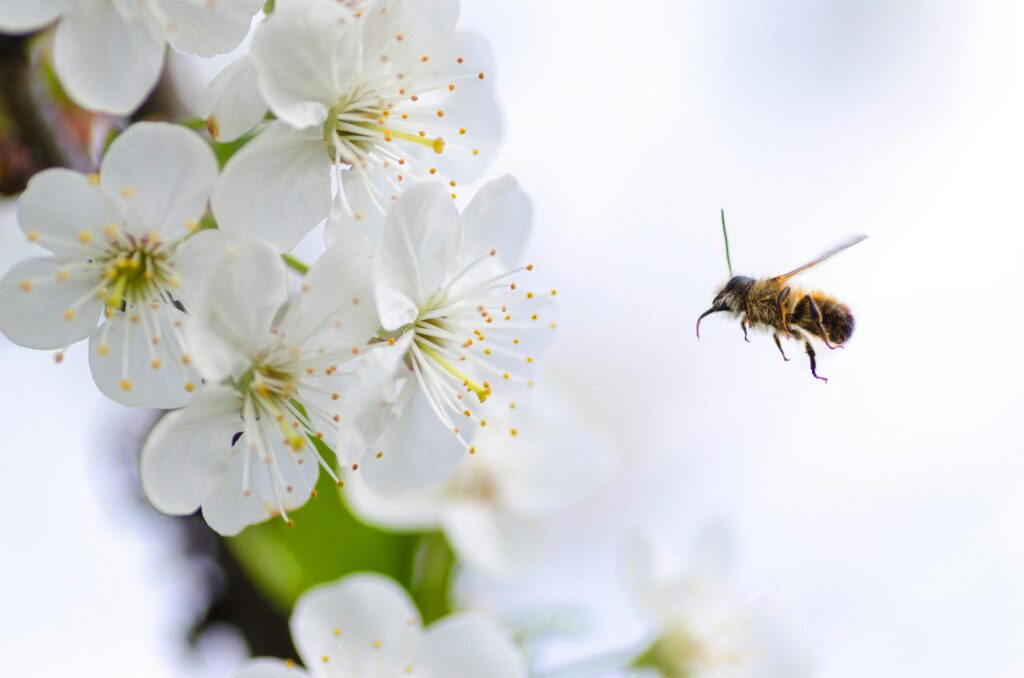Springtime is a time of the year beloved by all. From the pleasant weather to the wonderful activities such as picnicking and walking, there isn’t much one cannot do during springtime. However, springtime for many people also means allergy season. While allergies can be very irritating and annoying to deal with, it’s important to discuss how to manage them, so that you can enjoy springtime to its fullest.
What are Seasonal Allergies?
Seasonal allergies are allergies that occur in response to a particular irritant, commonly flower pollen and plant spores, during their respective blooming seasons; usually, this occurs in spring and early summer, and can pop back up in early fall (Seasonal Allergies (Allergic Rhinitis) > Fact Sheets, n.d.). Depending on which part of the country one lives in, allergy season can come at differing times and from differing sources. Most spring allergies start in February and go until about June. Trees begin their pollination phase early in March. They are soon followed by grass pollination, and finally multiple varieties of weed pollinating well into summer and even into parts of September and October. In tropical areas such as the southeastern United States, grass frequently pollinates for much of the year, extending the allergy season for those living in the given area. Trees and grasses cause most spring allergies, while weeds cause the majority of summer and fall allergies. Aside from natural sources, there are several sources of artificially produced allergens that correspond with seasons as well: smoke from campfires during the summer, insect bites and stings from spring and summer, and pine trees during the holiday seasons (Seasonal Allergies | Causes, Symptoms & Treatment | ACAAI Public Website, 2017).
Symptoms can include itchy and watery eyes, stuffy and runny nose, and a tickly throat among others. General symptoms include itchy skin, sneezing and coughing, runny and stuffy nose, wheezing, itchy and watery eyes, and slight difficulty breathing. If one is severely allergic to a specific allergen, they may also experience low blood pressure, vomiting, severe breathing impairment, and hives. The type of reaction also depends on how one was exposed; skin rashes occur from physical touch with the allergen, while respiratory symptoms arise from inhaling air that contains allergen particles (Allergies: Types, Symptoms, Treatment & Management, 2025).
Solutions
There are many ways to work around seasonal allergies, from lifestyle changes to over-the-counter medication that one can take. Per the Mayo Clinic, a great way to completely shut out most allergens is to avoid going outside on dry, windy days, where pollen is everywhere. Instead, try to plan outdoor activities right after rainfall, where pollen levels are minimal. In addition, one should avoid working with plants, as those are the primary cause of allergies. One should also take care to check local weather reports, as they always have information on pollen levels for a given day. If one cannot avoid pollen, there are a variety of over-the-counter remedies to fight off allergies as well! Antihistamines such as Benadryl can be found at local pharmacies such as CVS or Walgreens, and corticosteroid sprays such as Flonase Allergy Relief can also be easily obtained in local pharmacies. If allergies are severe, one should get albuterol to open up the airways, and in very severe cases, carry around an epipen for those life-threatening cases (Seasonal Allergies: Nip Them in the Bud, 2024).
Conclusion
In our battle against seasonal allergies, tissues and antihistamines are like our sword and shield. Armed with newfound knowledge on how to fight spring allergies, you will be able to enjoy your springtime no matter what tiny particles float around in the air.
References
- Allergies: Types, Symptoms, Treatment & Management. (2025, April 1). Cleveland Clinic. Retrieved April 20, 2025, from https://my.clevelandclinic.org/health/diseases/8610-allergies
- Seasonal Allergies (Allergic Rhinitis) > Fact Sheets. (n.d.). Yale Medicine. Retrieved April 20, 2025, from https://www.yalemedicine.org/conditions/seasonal-allergies
- Seasonal Allergies | Causes, Symptoms & Treatment | ACAAI Public Website. (2017, December 28). American College of Allergy Asthma and Immunology. Retrieved April 20, 2025, from https://acaai.org/allergies/allergic-conditions/seasonal-allergies/
- Seasonal allergies: Nip them in the bud. (2024, February 28). Mayo Clinic. Retrieved April 20, 2025, from https://www.mayoclinic.org/diseases-conditions/hay-fever/in-depth/seasonal-allergies/art-20048343
Discover more from medicineconnect.org
Subscribe to get the latest posts sent to your email.
